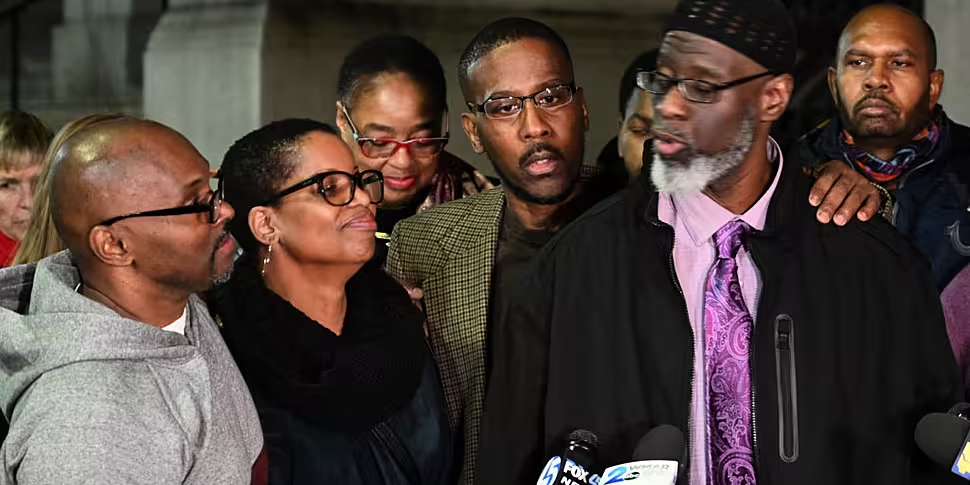Three men in the US have seen their murder convictions quashed after spending 36 years in prison.
Alfred Chestnut, Ransom Watkins and Andrew Stewart were teenagers when they were sentenced to life in prison for the murder of 14-year-old DeWitt Duckett in Baltimore, Maryland.
Mr Duckett was shot in the neck while he was walking to school in November 1983.
The three men were arrested shortly after and were convicted in 1984.
The case was reopened earlier this year after Mr Chestnut sent a letter to Baltimore city State Attorney’s conviction integrity unit – with new evidence proving their innocence.
It showed that multiple witnesses had told police that another suspect, who was 18-years-old at the time, was the gunman.
One student saw him flee the scene and dump a gun as police arrived – but the authorities still focused their investigation on the trio.
The other suspect was shot dead in 2002.
Police records which Mr Chestnut obtained them through a public records request last year showed that witnesses used in the trial had failed to identify the three men in photo line-ups – and had told police about the other suspect.
The men were freed from custody hours after a judge cleared them and prosecutors dropped the charges.
According to the Baltimore Sun newspaper, Judge Charles Peters told the men: “On behalf of the criminal justice system, and I'm sure this means very little to you gentlemen, I'm going to apologise.”
Shawn Armbrust, executive director of the Mid-Atlantic Innocence Project, which represents Watkins, said: “Everyone involved in this case - school officials, police, prosecutors, jurors, the media, and the community - rushed to judgement and allowed their tunnel vision to obscure obvious problems with the evidence.”
Mr Armbrust added that “this case should be a lesson to everyone that the search for quick answers can lead to tragic results.”









